Learning and knowledge sharing are fundamental to the LHSS Project. We invite you to search LHSS knowledge products and resources for the latest approaches, insights, and learning in the field of integrated health systems strengthening.
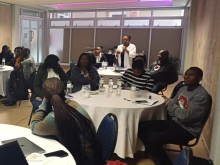
The Ministry of Health and Social Services in Namibia, with support from LHSS, held a 3-day workshop to equip the media with skills for accurate, sensitive reporting on UHC. The training covered UHC's importance, health emergency reporting, and data interpretation.
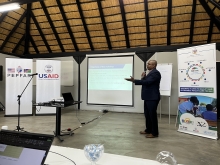
Namibia's Ministry of Health and Social Services conducted a workshop to map health and HIV expenditures using a combined System of Health Accounts and National AIDS Spending Assessment approach.
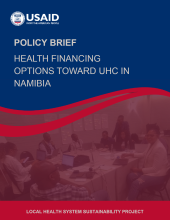
This policy brief proposes that Namibia should prioritize strengthening the tax-funded public health system provided through the Ministry of Health and Social Services (MOHSS) as the backbone of its UHC financing approach over other pooling options.
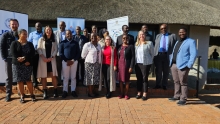
LHSS Namibia recently hosted a global knowledge workshop in collaboration with key public and private sector stakeholders. This comprehensive session allowed participants to delve into factors behind recent improvements and to strategize on sustaining and scaling these successes.

In Namibia, The Ministry of Health and Social Services conducted a comprehensive training session, with LHSS support, aimed at enhancing the capacity of its senior staff members. The focus of the training was social contracting, with particular emphasis on need identification and the intricate processes involved in contracting civil society organizations through social contracting mechanisms.
The Ministry of Health and Social Services in Namibia, with support from the LHSS Project, convened stakeholders in Windhoek to validate the costing of the Essential Health Services Package.
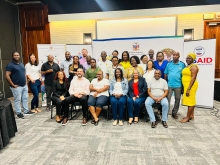
The Ministry of Health and Social Services gathered stakeholders at Midgard Country Estate to consult on standard operating procedures for social contracting. The goal: reach consensus on implementation plans and outline the path ahead, encompassing regional dissemination, pilot planning, and early implementation phases scheduled for later in the year.

Explore how the Ministry of Health and Social Services in Namibia, with support from the LHSS Project, is transforming health care access through the revised Essential Health Services Package.
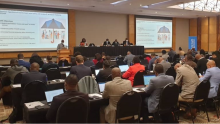
Through energetic and broad stakeholder collaboration, the country’s long-stalled effort to pass a UHC policy has gained momentum.
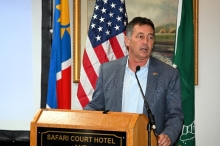
The launch of the combined Health Accounts and National AIDS Spending Assessment exercise conducted by the Ministry of Health and Social Services in Namibia aims to improve the collective understanding of both health and HIV spending in the country.
The Ministry of Health and Social Services, with the support of the USAID-funded Local Health System Sustainability project, facilitated an extensive training on the combined System of Health Accounts/National AIDS Spending Assessment resource tracking approach which aims to generate detailed estimates of both health and HIV spending.
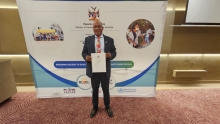
LHSS supports the Ministry of Health and Social Services in Namibia for the development of the country's groundbreaking UHC policy and Essential Health Services Package.
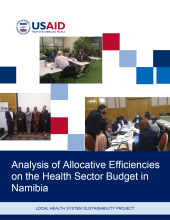
This analysis identified several inefficiencies related to how the financial budget and other financial resources are allocated and spent. It also presented potential actions that can improve resource allocation within the MoHSS budget and address some of the challenges identified during the analysis.
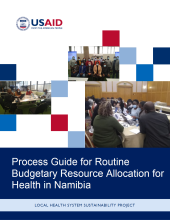
This process guide outlines an iterative process to support budgetary allocation decisions aligned with regional populations and needs as prioritized in the EHSP. The process guide proposes a broad decision-making framework that can be used to review current practices and move toward more efficient approaches in resource allocation.
This document describes the process to be followed for the regular revisions of the EHSP and presents important elements that support the updating, so that an EHSP that is a sustainable, equitable, and accessible—within financial and other constraints—is delivered to the population.
